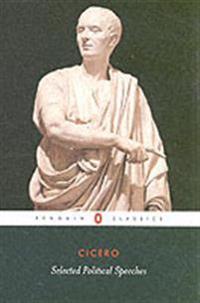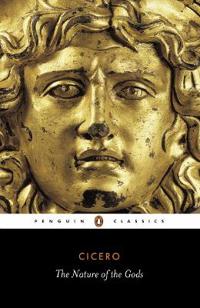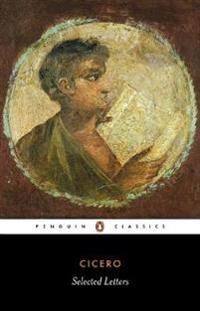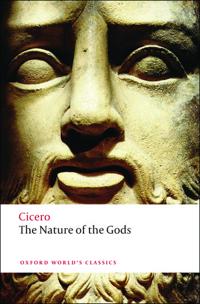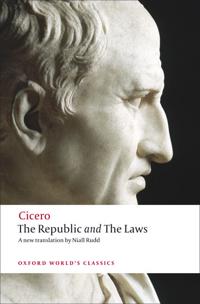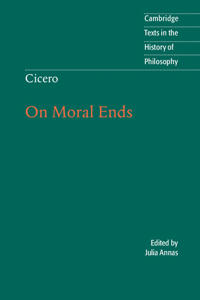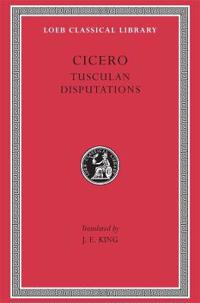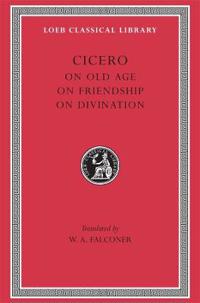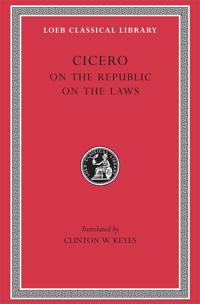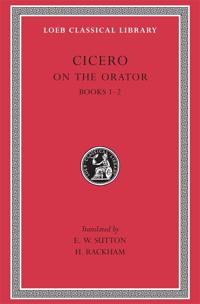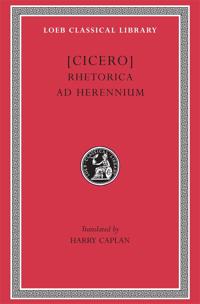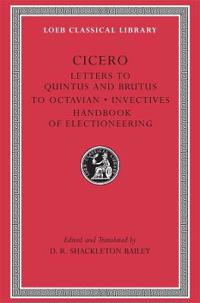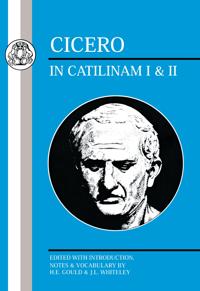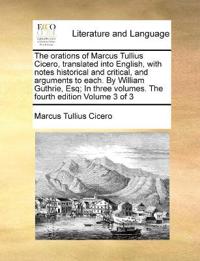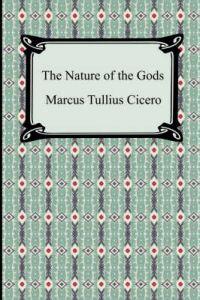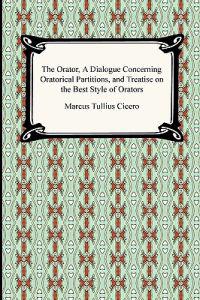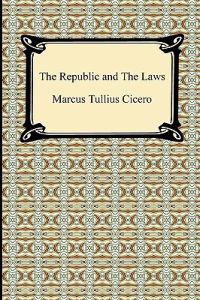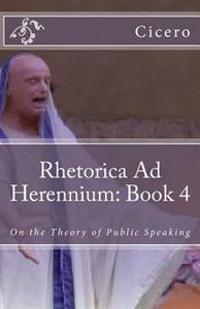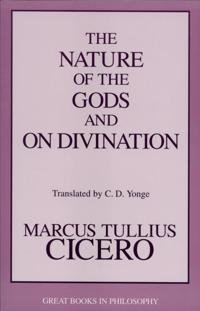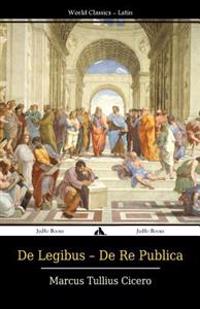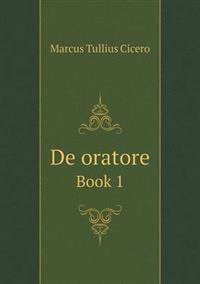Selected Political Speeches (Storpocket)
avMarcus Tullius Cicero
ISBN: 9780140442144 - UTGIVEN: 197304Amid the corruption and power struggles of the collapse of the Roman Republic, Cicero (106-43BC) produced some of the most stirring and eloquent speeches in history. A statesman and lawyer, he was one of the only outsiders to penetrate the aristocratic circles that controlled the Roman state, and be[...]
On the Good Life (Pocket)
avCicero, Marcus Tullius
ISBN: 9780140442441 - UTGIVEN: 1979-11-22This volume brings together Cicero's tentative and undogmatic reflections on the good life, in which he discusses duty, friendship, the training of a statesman, and the importance of moral integrity in the search for happiness.[...]
The Nature of the Gods (Storpocket)
avMarcus Tullius Cicero
ISBN: 9780140442656 - UTGIVEN: 197808Towards the end of his life, Cicero turned away from his oratorical and political career and looked instead to matters of philosophy and religion. The dialogue The Nature of the Gods both explores his own views on these subjects, as a monotheist and member of the Academic School, and considers the o[...]
Selected Letters (Storpocket)
avMarcus Tullius Cicero
ISBN: 9780140444582 - UTGIVEN: 1986-09The greatest orator in Roman history, Marcus Tullius Cicero remained one of the republic's chief supporters throughout his life, guided by profound political beliefs that illuminated his correspondence with both close friends and powerful aristocrats. A chronicle of a crumbling civilization during t[...]
Nature of the Gods, The (Inbunden)
avMarcus Tullius Cicero
ISBN: 9780198150404 - UTGIVEN: 1997-02-13The Nature of the Gods (Häftad)
avMarcus Tullius Cicero
ISBN: 9780199540068 - UTGIVEN: 200806'My present intention is to clear myself of any suspicion of partiality by presenting the views of the generality of philosophers concerning the nature of the gods.' Cicero's philosophical works are now exciting renewed interest, in part because he provides vital evidence of the views of the (largel[...]
The Republic and the Laws (Pocket)
avMarcus Tullius Cicero, Niall Rudd, Jonathan Powell
ISBN: 9780199540112 - UTGIVEN: 200907'However one defines Man, the same definition applies to us all. This is sufficient proof that there is no essential difference within mankind.' (Laws l.29-30) Cicero's The Republic is an impassioned plea for responsible governement written just before the civil war that ended the Roman Republic in [...]
On Moral Ends (Pocket)
avMarcus Tullius Cicero, Julia (EDT) Annas, Raphael (TRN) Woolf
ISBN: 9780521669016 - UTGIVEN: 2001-08This 2001 translation makes one of the most important texts in ancient philosophy available to modern readers. Cicero is increasingly being appreciated as an intelligent and well-educated amateur philosopher, and in this work he presents the major ethical theories of his time in a way designed to ge[...]
Philosophical Treatises (Inbunden)
avMarcus Tullius Cicero
ISBN: 9780674991569 - UTGIVEN: 1945-12Cicero (Marcus Tullius, 106-43 BCE), Roman lawyer, orator, politician and philosopher, of whom we know more than of any other Roman, lived through the stirring era which saw the rise, dictatorship, and death of Julius Caesar in a tottering republic. In his political speeches especially and in his co[...]
De Senectute (Inbunden)
avMarcus Tullius Cicero
ISBN: 9780674991705 - UTGIVEN: 197011Cicero (Marcus Tullius, 106-43 BCE), Roman lawyer, orator, politician and philosopher, of whom we know more than of any other Roman, lived through the stirring era which saw the rise, dictatorship, and death of Julius Caesar in a tottering republic. In his political speeches especially and in his co[...]
Laws (Inbunden)
avMarcus Tullius Cicero
ISBN: 9780674992351 - UTGIVEN: 192812Cicero (Marcus Tullius, 106-43 BCE), Roman lawyer, orator, politician and philosopher, of whom we know more than of any other Roman, lived through the stirring era which saw the rise, dictatorship, and death of Julius Caesar in a tottering republic. In his political speeches especially and in his co[...]
De Oratore (Inbunden)
avMarcus Tullius Cicero
ISBN: 9780674993839 - UTGIVEN: 196912On the Orator, Books 1-2
A. Rhetorical Treatises
Cicero
Translator E. W. Sutton and H. Rackham
Cicero (Marcus Tullius, 106â43 BC), Roman lawyer, orator, politician and philosopher, of whom we know more than of any other Roman, lived through the sti[...]Rhetorica ad Herennium (Inbunden)
avMarcus Tullius Cicero
ISBN: 9780674994447 - UTGIVEN: 198907Cicero (Marcus Tullius, 106-43 BCE), Roman lawyer, orator, politician and philosopher, of whom we know more than of any other Roman, lived through the stirring era which saw the rise, dictatorship, and death of Julius Caesar in a tottering republic. In his political speeches especially and in his co[...]
Letters to Quintus, Brutus, Octavian and Letter Fragments (Inbunden)
avMarcus Tullius Cicero
ISBN: 9780674995994 - UTGIVEN: 200203Cicero's letters to his brother, Quintus, allow us an intimate glimpse of their world. Vividly informative too is Cicero's correspondence with Brutus dating from the spring of 43 b.c., which conveys the drama of the period following the assassination of Julius Caesar. Shackleton Bailey also provides[...]
In Catilinam (Häftad)
avMarcus Tullius Cicero
ISBN: 9780862920142 - UTGIVEN: 199106This edition, first published by Macmillan in 1943, has the straightforward utilitarian aims of all those prepared by H.E. Gould and J.L. Whiteley: a basic introduction, reliable text, suitable illustrations, and a vocabulary that gives only those meanings that are required. Last and perhaps most im[...]
The Orator, a Dialogue Concerning Oratorical Partitions, and Treatise on the Best Style of Orators (Häftad)
avMarcus Tullius Cicero
ISBN: 9781420934335 - UTGIVEN: 2009-01Rhetorica Ad Herennium: Book 4: On the Theory of Public Speaking (Häftad)
avMarcus T. Cicero, Marciano Guerrero
ISBN: 9781495264214 - UTGIVEN: 2014-01Back from Exile: Six Speeches upon His Return (Pocket)
avMarcus Tullius Cicero
ISBN: 9781555406271 - UTGIVEN: 1991-05-01The Nature of the Gods and on Divination (Häftad)
avMarcus Tullius Cicero
ISBN: 9781573921800 - UTGIVEN: 1997-12The eminent Roman statesman and philosopher Marcus Tullius Cicero (106-43 b.c.e.) analyses the positions of the Stoic, Epicurean, and Academic schools on the existence and nature of the gods, and whether they act in the interests of humankind. Cotta, the Academic spokesman, criticises his Epicurean [...]

